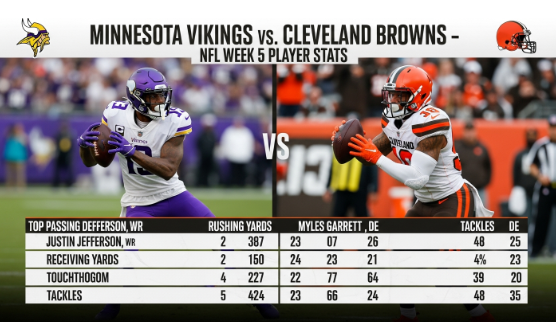Sports research is an important field that helps athletes, coaches, and sports organizations improve performance and prevent injuries. Sports research studies many areas like exercise science, nutrition, biomechanics, psychology, and medicine. By understanding the latest research, athletes can train smarter, stay healthy, and reach their full potential.
Sports research is not just for professional athletes. It benefits everyone who is active or wants to improve their fitness. Researchers study how the body reacts to different types of exercises, how mental health affects performance, and how equipment and technology can enhance results. This knowledge helps create safer training programs and better sports strategies.
The Importance of Sports Research
Sports research is essential for improving performance. Scientists and trainers analyze how the body moves, how muscles respond, and how energy is used during exercise. This helps design effective training routines. For example, research can show the best way to increase endurance for runners or the most efficient strength exercises for weightlifters.
It also helps prevent injuries. By studying common injuries in sports, researchers can develop prevention strategies. They look at how athletes can avoid overuse injuries, strains, and sprains. Sports research also guides rehabilitation, helping athletes recover faster and return to their sport safely.
Exercise Science in Sports Research
Exercise science is a major part of sports research. It studies how physical activity affects the body. Scientists look at heart rate, breathing, and muscle activity during workouts. This helps athletes train efficiently without overworking their bodies.
Exercise science also studies different types of training. For example, endurance training improves stamina, while resistance training builds strength. Combining these methods helps athletes reach their goals faster. Exercise science also helps design programs for beginners, seniors, and people with special health needs.
Sports Nutrition and Performance
Nutrition is a key focus of sports research. What athletes eat can impact their performance, energy levels, and recovery. Researchers study the effects of carbohydrates, proteins, fats, vitamins, and minerals on the body. They also analyze hydration and the timing of meals before and after training.
Sports research helps create personalized diets. For example, endurance athletes may need more carbohydrates for energy, while strength athletes require more protein to build muscle. Nutrition research also studies supplements and their benefits, helping athletes make safe choices.
Biomechanics: The Science of Movement
Biomechanics is the study of how the body moves. In sports research, it helps athletes improve technique and reduce injury risk. By analyzing movements, researchers can identify areas that need improvement. For example, a sprinter’s running form or a swimmer’s stroke can be optimized for better results.
Sports equipment design also relies on biomechanics. Shoes, rackets, and protective gear are developed based on research that ensures safety and performance. Understanding biomechanics can give athletes a competitive edge while keeping them safe.
Sports Psychology and Mental Training
Mental health is as important as physical health in sports. Sports research studies how focus, motivation, stress, and confidence affect performance. Techniques like visualization, goal setting, and mindfulness are studied to help athletes perform under pressure.
Sports psychologists work with athletes to manage anxiety, improve concentration, and recover from setbacks. Research shows that mental training can be as crucial as physical training for success in sports.
Technology in Sports Research
Technology plays a big role in modern sports research. Wearable devices, motion sensors, and performance trackers provide real-time data. This information helps coaches and athletes monitor progress and adjust training programs.
Video analysis and virtual simulations allow athletes to study their techniques and opponents. Advanced technology also helps in injury diagnosis and rehabilitation. Sports research combines science and technology to give athletes precise insights and tools for improvement.
Case Studies in Sports Research
Many successful athletes and teams use sports research to gain an advantage. For example, professional soccer teams analyze player movements and energy levels to optimize training schedules. Olympic athletes rely on nutrition and biomechanics studies to enhance performance. These case studies show how research translates into real-world success.
Challenges in Sports Research
Despite its benefits, sports research faces challenges. Human bodies respond differently to training and nutrition, making it hard to find one-size-fits-all solutions. Some research is expensive, requiring specialized equipment and experts. Ethical considerations also play a role, especially when testing new techniques or supplements on athletes.
Despite these challenges, ongoing research continues to improve understanding of sports performance and athlete health.
Future of Sports Research
The future of sports research looks promising. Emerging areas include genetics, artificial intelligence, and data analytics. Genetic research may help identify strengths and risks, allowing personalized training plans. AI and machine learning can analyze vast amounts of data to predict injuries or performance outcomes.
Virtual reality and simulation training could revolutionize how athletes practice. Sports research will continue to evolve, making sports safer, more efficient, and more exciting.
Conclusion
Sports research is vital for improving athletic performance, preventing injuries, and enhancing overall health. It combines exercise science, nutrition, biomechanics, psychology, and technology to provide a complete understanding of sports. From beginners to professional athletes, everyone can benefit from the findings of sports research. With ongoing studies and technological advances, the future of sports is brighter than ever, offering safer and smarter ways to achieve peak performance.
FAQs
Q1: Who can benefit from sports research?
Anyone involved in physical activity, from beginners to professional athletes, can benefit from sports research. It helps improve performance, prevent injuries, and optimize health.
Q2: What areas does sports research cover?
Sports research includes exercise science, nutrition, biomechanics, sports psychology, medicine, and technology in sports.
Q3: How does sports research prevent injuries?
By studying common injuries and movement patterns, researchers develop training programs and techniques to reduce the risk of injuries.





